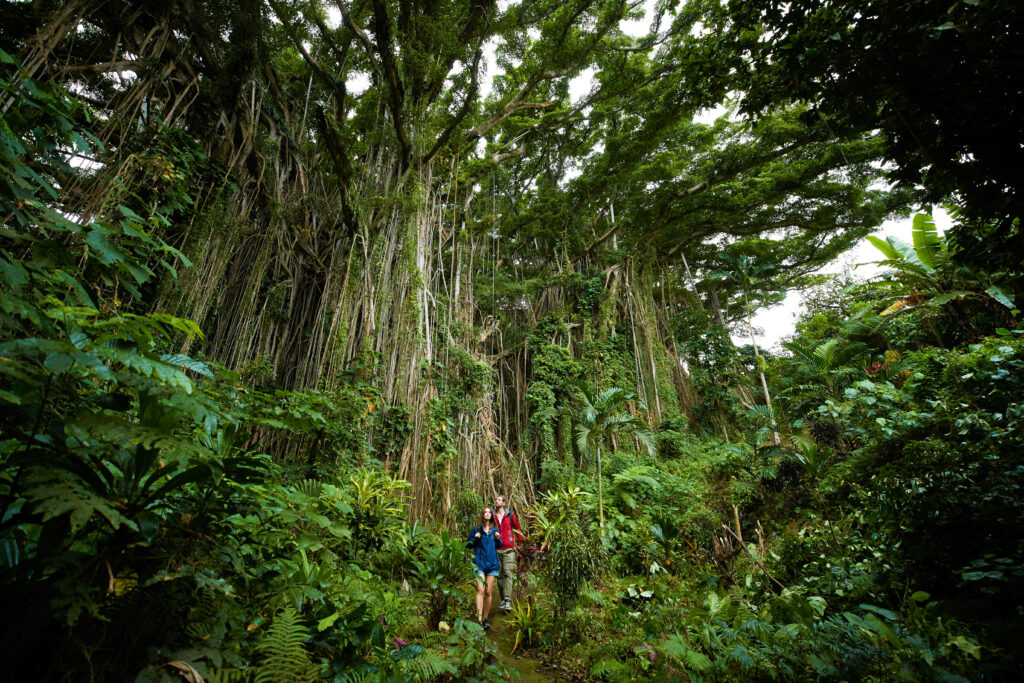Vanuatu offers unique wellness package taking travel back to its banyan tree roots
Vanuatu’s tourism industry has signed a pledge with visitors and local communities to promote respect and keep each other safe
The island nation promises to support and protect local communities while also ensuring a Covid-safe environment for both residents and visitors.
Learn more about the Vanuatu Nabanga Pledge…
The banyan tree – or the Nabanga as it is called in Vanuatu – is a symbol of community, life and protection. It is sacred in all of the country’s 116 dialects and cultures. The largest tree species in the archipelago, the banyan tree is celebrated as a protective symbol and presence. Its giant canopy and root system provide shelter and protection for countless species of flora and fauna. It is often used by residents as a sacred meeting place – a Nakamal- where important community issues are discussed and resolved.
The branches and roots of the tree represent Vanuatu’s strong sense of community, which extends from island to island. Villages are often built with the Nabanga tree at their centre and they are considered a respectful place which provides shelter, a meeting place, dancing grounds, and the centre of decision making towards keeping communities safe and going.
This is why the Nabanga lends its name to its nationwide pledge to remain Covid-safe, protecting both residents and tourists after re-opening its borders.
The Nabanga Pledge is not legally binding, it’s a promise that connects international visitors, the country’s tourism industry, Ni-Vanuatu chiefs, the people and its communities to respect and keep each other safe. The Ni-Vanuatu chiefs, people and communities sign the pledge to promise tourism operators that they value the industry for the recovery of their country, while also promising visitors that they will be welcomed as guests and leave as friends.
Visitors sign the pledge on arrival to promise local people and tourism operators that they are safe and will follow all health protocols during their stay and that they will be responsible visitors when in the country.
Hall 5.2 / Stand 103

